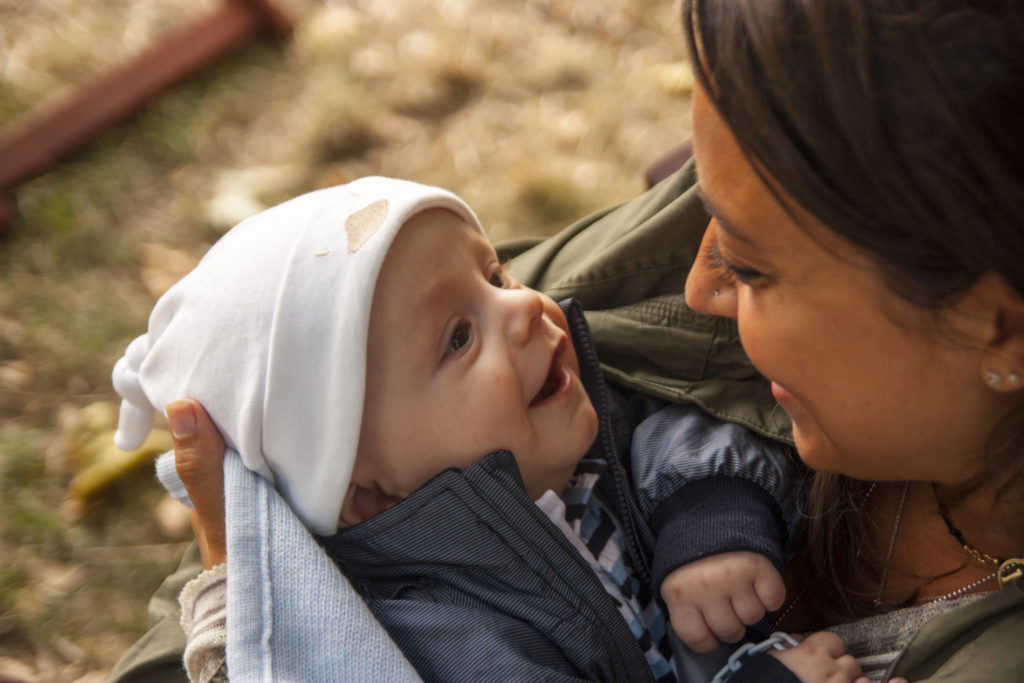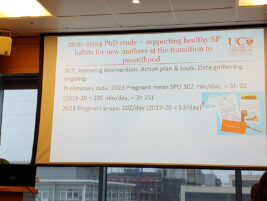In the wide field of infant and child development and psychopathology, Dan Stern played a major role all throughout his fascinating career. I like to think that among the results of his work was the opening up of psychoanalytic theory to early development and its practice.
We have to remember that as psychoanalytically-trained child psychiatrists we had to imagine how early child development took place – until child analysts developed sophisticated instruments which gradually showed that the first years of the child happen in the context of more and more complex interactions with the parental environment and that they are crucial for the outcome of the adult. Daniel Stern was a pioneer in such microanalysis of infant-mother interactions. In his book, The First Relationship: Mother and Infant (1977), he wrote :
« Somehow, in this brief period that I shall call the first phase of learning about things human, the baby will have learned how to invite his mother to play and then initiate an interaction with her; he will have become expert at maintaining and modulating the flow of a social exchange; he will have acquired the signals to terminate or avoid an interpersonal encounter, or just place it temporarily in a “holding pattern”. In general, he will have mastered most of the basic signals and conventions so that he can perform the “moves and run off” patterned sequences in step with those of his mother, resulting in the dances that we recognize as social interactions. This biologically designed choreography will serve as a prototype for all his later interpersonal exchanges » (Stern, 1977, p. 1).
It is in the course of such work that Stern developed his theory of development of the self within the context of an interpersonal world, around concepts which are manifestations of development within a social network : representations of interactions that have been generalized (RIGS), evoked companions, self with other.
It is also interesting to remember that Stern’s ideas often came in conflict with analysts who seemed to think that this emphasis on observed interactions and environmental influence was felt to be a threat on the internal, imaginary life of the child. This conflict was dramatically shown in a meeting held in London where André Green and Dan came into an intense struggle (Sandler et al, 2000). Green accused Stern in particular (as well as Robert Emde and Peter Fonagy in the same volley) of trying to destroy psychoanalytic theory by replacing it with a non-psychoanalytic, so-called scientific psychology. In response to this accusation, Stern suggested that infant observations could lead to hypotheses most pertinent for psychoanalysis.
Such work did not stay at that hypothetic level and led to most important papers on factors of change in psychotherapy : «…even in a “talking therapy”, a vast amount of therapeutic change occurs in the realm of procedural knowledge that is not conscious, especially implicit knowledge of how to act, feel, and think when in a particular relational context (implicit relational knowing)». (Stern, 1998, 307).
That the relationship is a factor of change came again in Dan’s work in his discussion of several papers on early intervention with disadvantaged parents where he writes :
«… The largely unpredictable products of their interaction become the subject matter that brings about change…the process of interrelating, itself, brings about change…it brings about new experiences, feelings, insights, and interactional skills ». (Stern, 2006, 3).
We will all miss Dan’s presence and his unique way of elaborating his thinking. We will also remember him through our therapeutic work that now has to integrate the fundamental idea that therapist and patient are in the process of living a new relationship which may lead to a significant transformation.
References
Stern, D. (1977). The first relationship. Mother and Infant. Cambridge : Harvard University Press.
Stern, DN. (1998). The process of therapeutic change involving implicit knowledge : Some implications of developmental observations for adult psychotherapy. Infant Mental Health Journal, 19(3), 300-308.
Stern, D. (2006). Introduction to the special issue on early preventive intervention and home visiting. Infant Mental Health Journal, 27(1), 1-4.
Authors
Gauthier, Yvon, MD,
Emeritus Professor (Psychiatry),
Université, Canada








